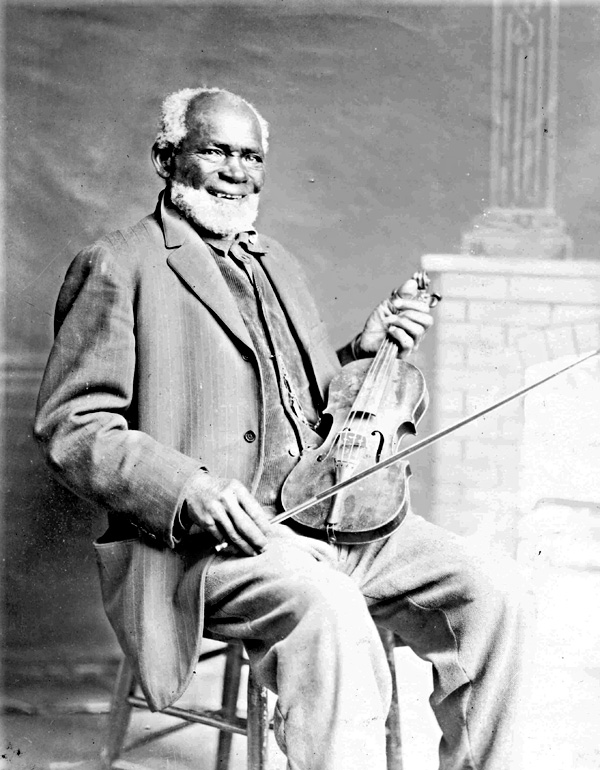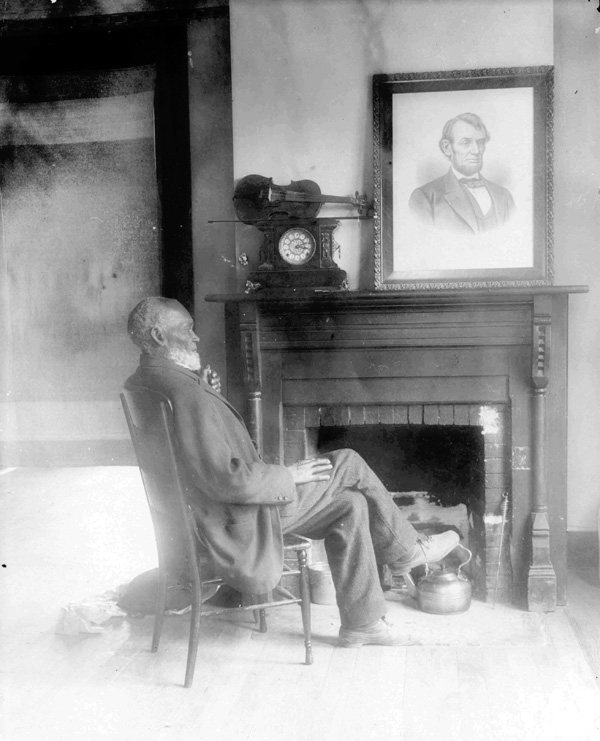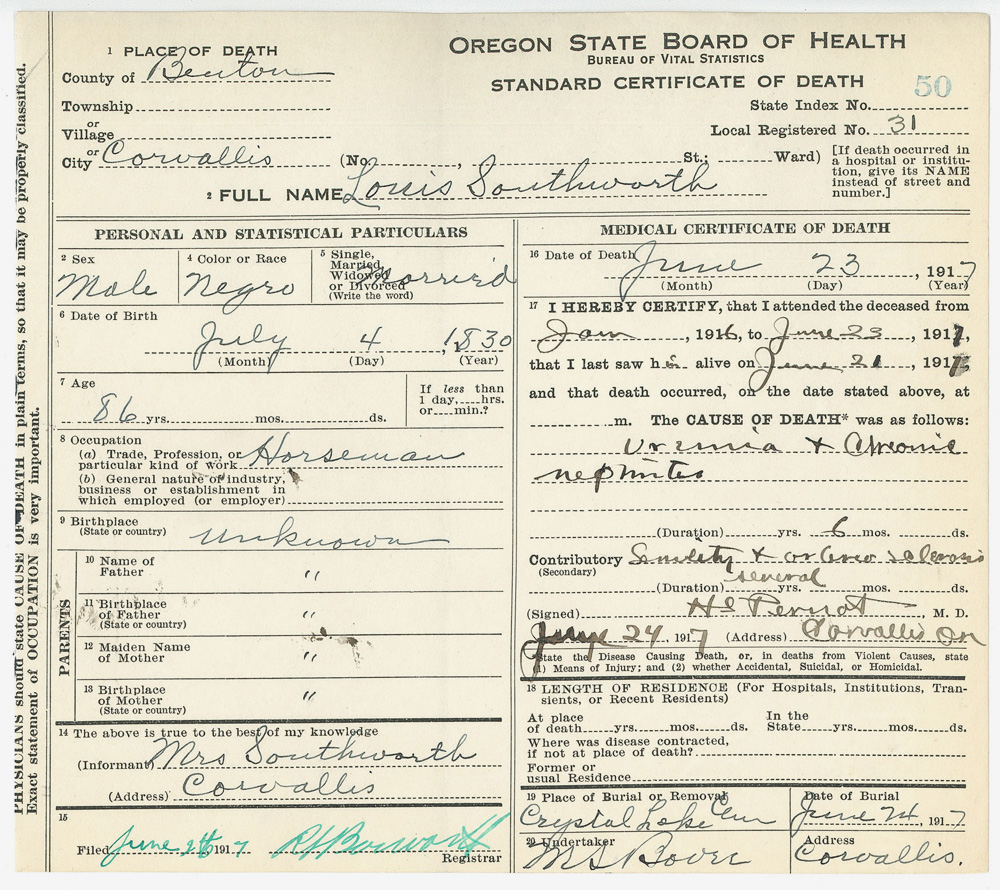 Portrait of Lewis Southworth with his Beloved Fiddle courtesy Benton County Historical Society.
Portrait of Lewis Southworth with his Beloved Fiddle courtesy Benton County Historical Society.
Louis (Lewis) Alexander Southworth (ca. 1830–1917)
Louis (Lewis) "Lou" Alexander Southworth was born July 4, 1830, in Tennessee. His father’s name was Hunter, but since he was born into slavery his surname was that of his master, James Southworth.
In 1853, Louis and his mother, Pauline, immigrated to Oregon with James Southworth. In biographical accounts, Louis moved to Jacksonville and worked mining gold to earn money for buying his freedom.
Information also suggests he fought in the Rogue River Indian Wars in southern Oregon with Colonel John Kelsay’s company of volunteers. The muster roll for Kelsay’s Second Regiment does not include an entry for a Southworth, so it appears he wasn’t formally mustered in as a member of the company. However, according to Charles H. Carey’s
General History of Oregon, Southworth was wounded during a skirmish in either March or April of 1856.
Louis moved to Yreka, California sometime around 1858, and made his livelihood playing the violin for local dancing schools, earning the $1000 ($27,000 in today’s dollars) necessary to buy his freedom. After Louis bought his freedom, James Southworth circulated a petition in Lane County to protect "slave property." The petition made its way to the state legislature but it was not adopted and Louis was free from Southworth.
 Louis Southworth sits by the fireplace in front of an image of Abraham Lincoln. Image courtesy Benton County Historical Society.
Louis Southworth sits by the fireplace in front of an image of Abraham Lincoln. Image courtesy Benton County Historical Society. In 1868, Louis took up residence in Buena Vista, purchasing land and establishing a blacksmith shop and livery stable. He married Mary Cooper in 1873. Mary had adopted a boy, Alvin McCleary, who was born in San Francisco of Jamaican parents. Taking advantage of the Homestead Act which had no race restrictions, Louis and his family moved to a homestead near Waldport where Louis operated a scow, ferrying passengers and cargo across the Alsea River. During the summers Southworth worked near Philomath and Corvallis, helping with the hay and wheat harvests to earn money for winter supplies.
According a 1932 article in the
Oregon Journal, stepson Alvin reminisced:
 The 1917 death certificate of Louis Southworth.
Enlarge image
The 1917 death certificate of Louis Southworth.
Enlarge image “Lou had a good rifle and was a crack shot. We always had plenty of deer, elk and bear meat and…There was plenty of salmon, trout, clams and crabs here; so we lived well.”
Louis Southworth died June 23, 1917 in Corvallis, Oregon at the age of 86. He was survived by his second wife, Josephine Jackson, whom he married in 1913. His stepson, Alvin McCleary, continued to live and work in Lincoln County and eventually served as a city councilman in Waldport, Oregon.
Sources
Elizabeth McLagan,
A Peculiar Paradise: A History of Blacks in Oregon (Portland: Georgian Press, 1980); George P. Rawick, ed.,
The American Slave: A Composite Autobiography, supplement series 1, Arkansas, Colorado, Minnesota, Missouri and Oregon and Washington Narratives (Westport, Conn.: Greenwood Press, 1977), Vol. 2; Peggy Baldwin, "A Legacy Beyond the Generations,"
Genealogical Forum of Oregon, 2006; Oregon Marriage and Death Certificates at Oregon State Archives.